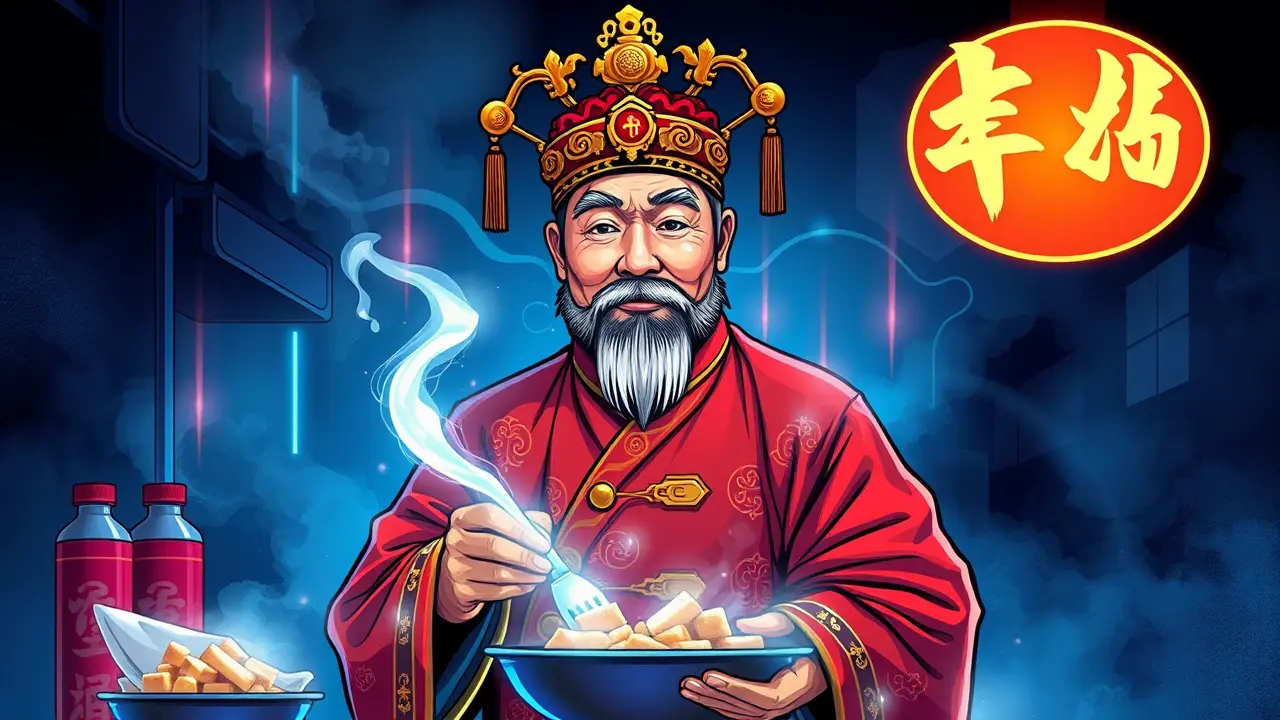Food Vendor Boosts Sales by Dressing as Famous TV Emperor
In the bustling, steam-filled snack streets of Wuhan, where the sizzle of oil is the local soundtrack and the pungent aroma of fermented delights hangs perpetually in the air, a 40-year-old vendor named Ye has cooked up a recipe for viral success that’s as unconventional as it is brilliant 🍢. After his humble breakfast shop went belly-up at the end of last year, Ye found himself at a culinary crossroads, pivoting to the divisive yet beloved street food staple: fried stinky tofu.But in a city teeming with competitors, how does one make their stall stand out? For Ye, the answer was hiding in plain sight, or rather, in the mirror—a startling, almost uncanny resemblance to the celebrated Chinese actor Chen Jianbin, who immortalized the stern, formidable Emperor Yongzheng in the wildly popular television series *Zhen Huan Zhuan*. So, he did what any savvy entrepreneur with a doppelgänger advantage would do: he fully committed to the bit, donning the elaborate robes and iconic headdress of the Qing dynasty ruler, transforming his modest food stall into a tiny, deep-fried imperial court.The result? An absolute business boom that feels less like a simple marketing stunt and more like a masterclass in personal branding and cultural nostalgia. Imagine the scene: customers aren’t just lining up for a quick, greasy snack; they’re paying homage, snapping selfies with a ‘sovereign’ who wields a spatula instead of a scepter, issuing ‘imperial decrees’ about the perfect chili sauce ratio.It’s a full-sensory experience that taps directly into the collective Chinese psyche, where history, drama, and comfort food collide in the most delightful way. This isn’t just a gimmick; it’s a testament to the power of identity and humor in the gritty world of small business.While countless vendors rely on price wars or flashy signs, Ye leveraged pop culture capital, understanding that in the age of social media, an Instagrammable moment is worth a thousand menu items. His story echoes a broader, global trend of experiential commerce—from the themed cafes of Tokyo to the immersive dining pop-ups of New York—where the product is only half the purchase; the memory is the other.Yet, Ye’s ascent is particularly poignant because it’s rooted in a specific, shared cultural touchstone. *Zhen Huan Zhuan* wasn’t just a show; it was a national phenomenon, a watercooler moment that dominated conversations and defined an era of Chinese television.By embodying one of its most iconic characters, Ye isn’t just selling tofu; he’s selling a piece of that collective memory, a delicious, deep-fried slice of nostalgia that transports his customers back to the drama and intrigue of the series. It’s a clever, almost anthropological exploitation of fandom, turning passive viewers into active, hungry participants in his culinary theater.What’s next for the Emperor of Stinky Tofu? One can easily imagine a franchise empire, with loyal subjects across Hubei province demanding their own local ‘imperial’ outposts. Perhaps a branded line of sauces, or even a collaboration with the actual actor, Chen Jianbin himself—a meeting of the original and the impersonator that would break the Chinese internet. But for now, amidst the clatter of woks and the joyful chatter of his newfound courtiers, Ye stands as a beautiful reminder that sometimes, the most powerful business strategy isn’t found in a spreadsheet, but in a costume closet, and that a little theatrical flair can turn a simple meal into an unforgettable event ✨.
It’s quiet here...Start the conversation by leaving the first comment.
© 2025 Outpoll Service LTD. All rights reserved.
